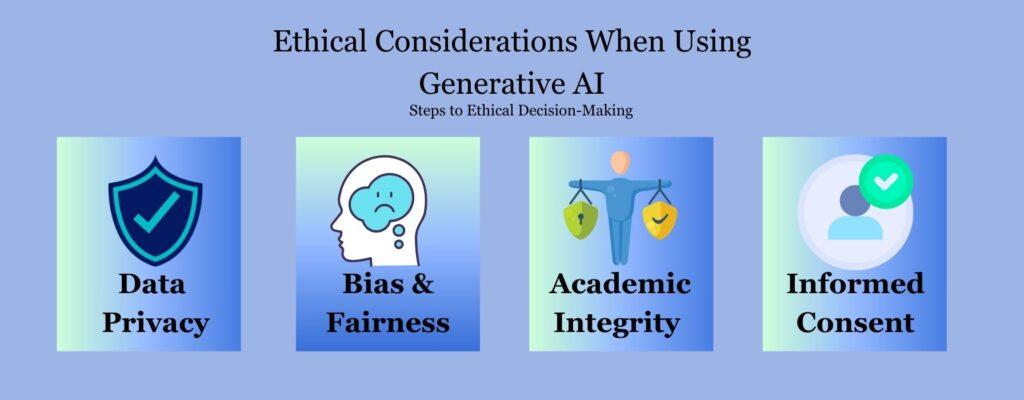Ethical Considerations in AI-Driven Learning: Safeguarding Privacy and Fairness in Education
Artificial intelligence is revolutionizing education by personalizing learning experiences, automating administrative tasks, and providing deeper insights into student performance. Though, teh rapid integration of AI in education also brings crucial ethical considerations to the forefront, notably concerning privacy and fairness. As we embrace the promises of AI-driven learning, it is vital to address these challenges to create secure, inclusive, and equitable educational environments.
Why Ethical Considerations in AI-Driven Learning Matter
The deployment of AI in educational settings influences decisions that affect students’ academic and personal advancement. From adaptive learning platforms to automated grading systems, AI technologies process vast amounts of educational data and often make recommendations or decisions without human intervention. Recognizing the importance of AI ethics in education helps to:
- Uphold students’ trust and rights
- Ensure openness in educational processes
- Prevent discrimination and unconscious bias
- Protect sensitive student information
Understanding Privacy Risks in AI-driven Education
One of the main ethical challenges in AI-powered learning environments is safeguarding student privacy. AI systems require access to wide-ranging data — including academic records, behavioral data, and even biometric information. If not managed correctly, this can led to privacy breaches and potential misuse of personal information.
Common Privacy Risks:
- Data Collection Overreach: AI systems may gather needless or excessive information, some of which might potentially be sensitive.
- Insufficient Data Anonymization: Improper handling or lack of anonymization can allow re-identification of individual students, even in large datasets.
- Third-Party Data Sharing: Educational data may be shared with external partners, vendors, or used for unintended purposes.
Best Practices to Protect Student privacy:
- Implement robust data encryption and secure storage solutions
- Minimize the amount of personal data collected to only what is necessary
- Regularly audit AI systems and third-party vendors for data compliance
- Educate students and staff on digital privacy rights and safe usage
- Offer transparent, accessible privacy policies and opt-out options
Tackling Fairness and Bias in AI-driven Learning
Fairness in AI education systems is about ensuring that all students—regardless of their background, ethnicity, gender, or ability—have equal access to resources, opportunities, and outcomes. Unluckily, AI models can unintentionally reinforce societal biases present in historical or training data, leading to biased algorithmic decisions and exacerbating educational inequalities.
Sources of Bias in AI Learning Tools:
- Biased Training Data: AI systems trained on data that underrepresent certain groups may make less accurate predictions or recommendations for those populations.
- Algorithmic Bias: The design of algorithms may favor certain behaviors or knowledge, resulting in unfair scoring or recommendation patterns.
- Socio-Economic Disparities: Students from less privileged backgrounds may have limited access to the necessary technology, further deepening inequality.
How to Promote fairness in AI-Driven Education:
- Use diverse, representative datasets when training AI models
- Regularly monitor and audit algorithms for biased outcomes
- Involve educators, communities, and underrepresented groups in the AI system development process
- Provide transparency into how AI-based decisions are made
- Develop accessible and inclusive technologies for all learners
Benefits of Addressing Privacy and fairness Concerns
When educational institutions take privacy and fairness seriously in AI applications in education, several positive outcomes follow:
- Increased Trust: Parents, students, and educators are more likely to embrace AI benefits when they feel assured about privacy and fairness.
- Enhanced Learning Outcomes: Ethical, unbiased AI tools can help personalize education, closing achievement gaps and supporting diverse learners.
- Compliance and Reputation: Adhering to global data protection laws (like the GDPR or FERPA) and ethical standards boosts institutional credibility.
- Innovation with Accountability: Institutions can confidently innovate, knowing that guardrails are in place to protect all stakeholders.
Tip: When selecting AI-driven educational platforms, always ask vendors about their privacy practices, audit trails, and bias mitigation efforts.
Case Studies: Ethical AI in Educational Practice
1. Protecting Privacy: The EdTech Data Governance Model
A leading school district in the US implemented a stringent data governance policy when adopting AI grading tools. by involving data privacy officers, teachers, and parents in every stage—from procurement to deployment—the district managed to protect sensitive student data and build community trust. Data was encrypted, regularly audited, and never shared with external vendors without parental consent.
2. Reducing Bias: Inclusive AI Assessment in Australia
An australian university identified that their automated grading system was producing uneven results among students with different linguistic backgrounds. Through bias audits and ongoing feedback loops with diverse student populations, the university retrained their AI model using a more representative dataset, resulting in fairer, more accurate assessments.
Practical Tips for Educators and Institutions
- Educate Stakeholders: Offer regular workshops for teachers, students, and parents on AI literacy and digital rights.
- Adopt Transparent AI Policies: Make your institution’s AI use guidelines, privacy policies, and bias mitigation strategies accessible to all.
- Support Open-Source AI: Participate in open-source projects and encourage community input to foster transparency and collaboration.
- Encourage Ethical AI Procurement: Collaborate with vendors who demonstrate commitment to privacy and fairness.
- Establish Accountability Committees: Form interdisciplinary teams to oversee AI deployments and respond to ethical concerns.
Conclusion: Striking the Right Balance between Innovation and Ethics
The future of AI-driven education is full of promise, but it can only deliver on its potential if privacy and fairness are placed at the center of its design and deployment. By prioritizing ethical AI practices, educational organizations can create environments where learners are empowered, safe, and treated equitably—transforming technology from a risk into a tool for social good. Let’s commit to safeguarding privacy and fairness as foundational principles, ensuring that AI in education benefits everyone.

